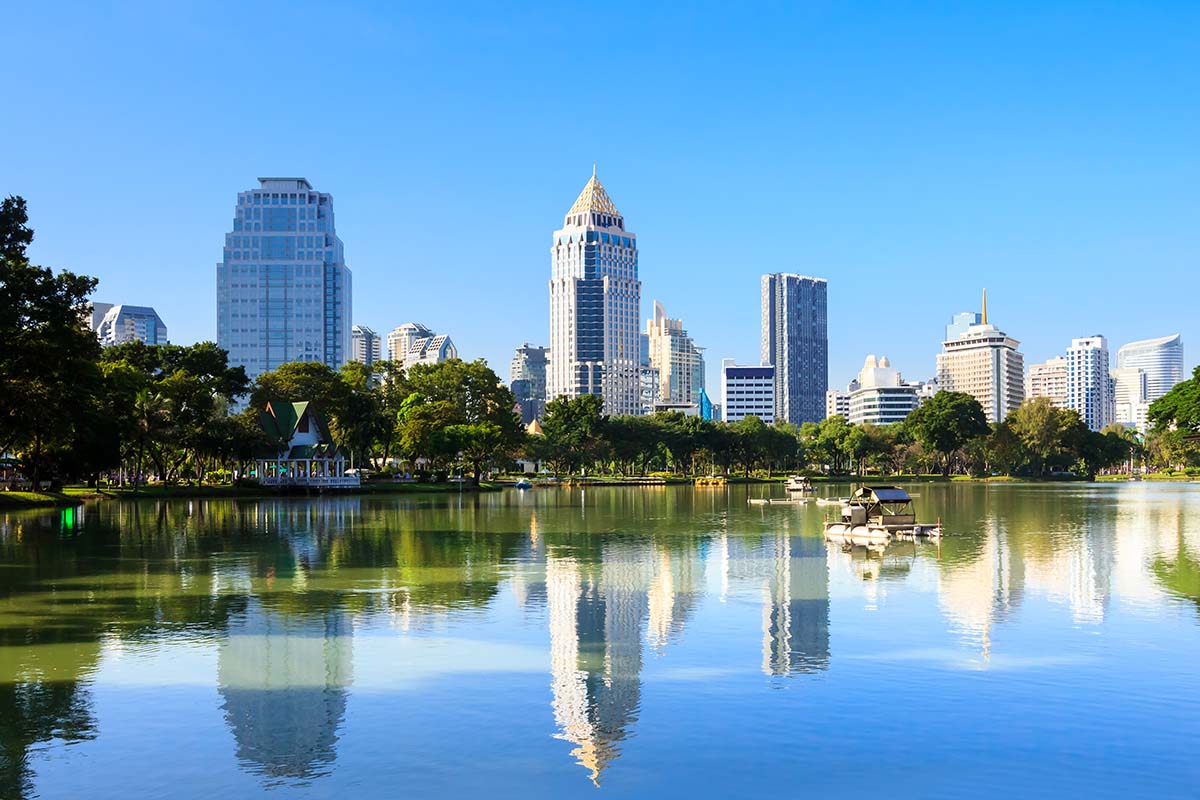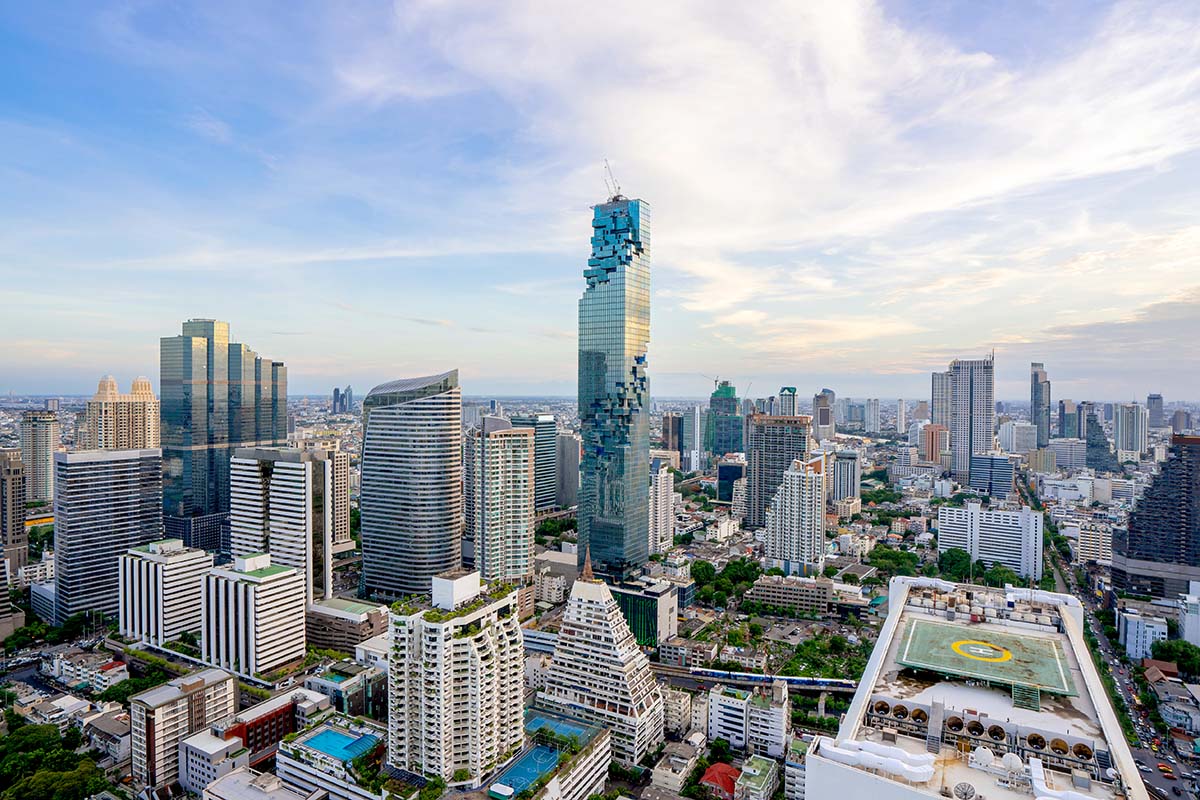_480x320.jpg)
Due to the warm climate and affordable living, emigration to Thailand has become a common phenomenon among English-speaking citizens. The cost of living in the country directly depends on the region. Example: the popular island of Phuket, located on the Kingdom's west coast, is one of the most expensive places to live in Thai.
Content:
- Immigration to Thailand in 2024: Rental prices
- Cost of food in Thailand
- Clothing, fuel, and toiletries prices
- Medical expenses in Thailand
- Living in Thailand: Pros and cons
In the resort city of Pattaya, living is more affordable. The city has a large English-speaking population.
Bangkok is also one of the more expensive cities. The city has a well-developed infrastructure and is home to offices of large international companies, often offering high-paying jobs to foreigners.
One of the biggest expenses is buying or renting property in Thailand. If you decide to own your property, please note that you can only purchase real estate in special freehold projects. These are usually condominiums. In Phuket, studios and 1-bedroom apartments start at $100,000.
In other regions, you can find more affordable housing. Small apartments are available from $42,000. Private villas in Thailand can only be sold to foreigners with the right of long-term ownership for a period of 30 years, which can be extended twice in another 30 years. The minimum price of a small 2-bedroom house is $67,000.
Immigration to Thailand in 2024: Rental prices
Many citizens of western countries choose Thailand to live permanently. Life in this warm country is comfortable whether for families with children or individuals. The rental property market offers apartments in a wide range of pricing. You can find affordable apartments as well as luxurious penthouses and oceanfront villas. Prices will be higher in the resorts and central areas of Bangkok. Renting a studio apartment here typically costs around $352 per month. Similar apartments on the outskirts of Bangkok cost about $147 per month.
Renters of apartments in Thailand also pay the water and electricity bills. The monthly price per person is around $59. Home Internet is usually around $29 per month.
Cost of food in Thailand

Products in traditional Thai markets are cheaper than in supermarkets, and you can often negotiate a discount with the vendor. Fresher fish, meat and seafood are usually sold at markets. A wide variety of tropical fruits is also available at relatively low prices.
However, supermarkets offer a wider range of familiar European foods, including various grains, desserts, meat dishes, and dairy products that are not popular with locals. Stores with a good selection of European products include retail supermarkets and convenience stores such as 7/11, Family Mart, Tesco Lotus, Villa Market, and others.
Many expats like to shop at 7/11 convenience stores, which can be found on virtually every block and are open 24 hours a day. They sell basic groceries and snack foods, including boxes of pre-cut fruit.
Food prices
Let's provide average prices for popular food items:
- 1 kg of rice – $1.5
- 5 liters of water – $0.3
- 800 ml milk – $1.3
- 150 gm of sour cream – $1.2
- 10 eggs – $1.7
- 1 kg chicken fillet – $2.6
- 1 kg of pork – $7.4
- 200 grams of cheddar cheese – $4.5
- 1 kg of cabbage – $0.8
- 1 kg of potatoes – $3.8
- 1 kg carrots – $2
- 1 kg of mango – $0.8
Cost of eating out in Thailand
Thais are not used to cooking at home. Many local homes don't even have a full kitchen. This is the reason why street stalls and small restaurants where you can buy inexpensive food are common.
There are many stalls, especially in the markets, where fresh seafood, eggs, meat, and fish dishes are prepared right in front of you. You can also order Thai pancakes, coconut-filled balls, and other traditional desserts.
The cost of ready-made food is low, and often eating out is not much more expensive than buying groceries at the store to cook at home. As an example, a traditional noodle or rice dish at a market will cost about $1.76, while at a cafe it will range from $3.5 to $5.8. In a restaurant serving European cuisine, you will pay between $8.8 and $17.5 for a single portion.
Clothing, fuel, and toiletries prices
Clothing prices vary widely depending on the brand and where you buy it. The cheapest items can be found at markets, where T-shirts and shorts typically sell for as little as $3.
Large supermarkets such as Big C and Tesco also carry a wide range of clothing, but prices are slightly higher than at markets. You can go shopping in shopping malls, where well-known mass-market brands operate. Prices in these stores are similar to those in other countries around the world. The cost of a T-shirt ranges from $8.8 to $11.7. Jeans start at $45 and dresses at $58.5. Name brand items are more expensive. As an example, Levi's jeans is about $107, and Nike sneakers start at $70.
The cost of toiletries depends on the brand. Well-known European brands such as Nivea, Gillette, Colgate, and others are more expensive than local alternatives. Let's take a look at the prices of the most commonly used toiletries:
- 400 ml shampoo – $3.65
- Nivea roll-on deodorant – $2.59
- Colgate toothpaste – from $1.55
- A pack of 64 baby diapers – $18.8
- 6 rolls of toilet paper – $2.2
- Bar of soap – from $1.4
Regarding transportation, the cost of 1 liter of premium gasoline ranges from $1.1 to $1.4. The average taxi fare is $1 per kilometer. Bus fare is about $0.35.
Songthaew is one of the cheapest forms of public transportation. It's a pickup truck with two benches along the sides that serves as a sort of shared taxi. The fare is as low as $0.23.
Medical expenses in Thailand
Thai is known with providing high quality healthcare at affordable prices. Emigrating to the country to treat and reabilitate is a common practice. The country ranks 5th out of 195 countries in the Global Health Security Index in terms of the effectiveness of its healthcare system. The quality/price ratio of medical services is highly regarded. Statistics show that Thai accounts for 22% of the medical tourism market.
Among the advantages of local clinics are not only excellent quality of medical care, but also fast service. Hospitals offer various health checkup packages that allow a quick assessment of one's health. Foreigners come to the country to do plastic surgery and cosmetic procedures. Dental and surgical services are also in high demand.
Healthcare is free for Thai citizens. Expatriates who are employed and contribute to the insurance fund are covered and can receive services at a public hospital. Other foreigners pay for health services either out of pocket or through insurance.
Patients usually go to hospitals on their own. Emergency services are sent to homes only in life-threatening situations, and the cost of such a visit is about $60.
It is advisable to take out an insurance policy that will cover some or all your medical expenses. The cost of an insurance policy depends on the health of the applicant. For a person between the ages of 30 and 35, a basic insurance programme covering medical services and hospitalization will cost up to $1,500 per year.
There are also comprehensive insurance programs that include expensive diagnostic and treatment procedures, preventive checkups, and dental services. The cost of such insurance can exceed $5,000 per year. For tourist trips, it is sufficient to purchase an insurance policy for the entire stay. A monthly policy costs between $60 and $100.
Money in Thailand
Upon arrival in Thailand, you will need to change your money into the local currency, the Thai Baht. Payments are usually made in Thai Baht. It's almost impossible to pay your goods or services with US dollars or Euros. On rare occasions, you may be able to use these currencies with tour operators and guides working in the country.
Many people in Thailand use credit cards. This is convenient and safe, especially when purchasing in supermarkets and shopping centers. However, at markets and small food and souvenir shops, cash is often the preferred form of payment.
The current exchange rate for the US Dollar is 35.48 Thai baht to 1 US Dollar. It’s advisable to bring cash in US dollars or euros and exchange it for Thai baht.
To avoid losing money due to exchange rate differences, it's a good idea to choose a currency exchange service with the most favorable rates. Such services can be found in large supermarkets or shopping malls. Exchange offices in airports and hotels usually offer less favorable rates. If you need Thai Baht urgently, it's better to exchange a small amount.
How to earn money in Thailand
When you move to Thailand, your standard of living won't decrease if you have a source of passive income (savings, stocks, bonds, commercial real estate), official employment in the country, or stable remote work.
In this tropical country, many IT professionals spend their winters working as they can work from anywhere in the world. With a good income, you can live comfortably in the Kingdom and spend your free time at the seaside, exploring the natural, cultural, and historical attractions of the region.
Finding work there is not a problem for foreigners. The most common professions are tour guides, designers, tourism and sales managers, interpreters, and English teachers. In general, salaries here aren’t the highest, but some IT specialists manage to secure high-paying contracts with large international companies.
Living in Thailand: Pros and cons

Phuket, Samui, Pattaya, and Bangkok are among the most popular destinations to relocate among English-speaking citizens. Expats highlight the following advantages of the country:
- Relatively low prices.
- The ability to enjoy the sea, surfing, and various water sports throughout the year.
- High quality health care.
- Availability of international schools and private nurseries.
- Friendly attitude of the local population towards foreigners.
- Beautiful nature and numerous possibilities for tourist trips.
The disadvantages include:
- Higher price of services and products aimed at foreign consumers.
- The need to adapt to a hot and humid tropical climate.
- Chaotic traffic on the roads.
- A specific local cuisine with many spicy dishes.
- A long and complicated process for obtaining permanent residency.
Despite some drawbacks, foreigners continue to choose the tropical country as a place to relocate, winter or vacation.


